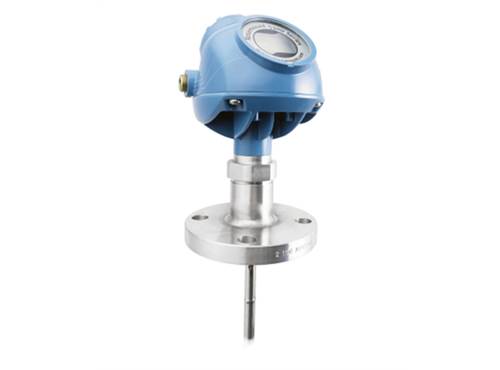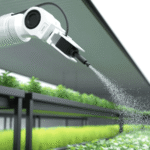In industrial automation and process control, pressure transmitters play a crucial role in monitoring and maintaining system stability. They measure the pressure of gases, vapors, or liquids and convert that data into an electrical signal for monitoring, control, or safety operations.
From refineries and power plants to water treatment and manufacturing, these transmitters are indispensable for efficiency, safety, and quality assurance.
This article explains how pressure transmitters work, the types available, their advantages, and why choosing the right transmitter can make a measurable difference in industrial performance.
What Is a Pressure Transmitter?
A pressure transmitter is a precision instrument used to measure pressure and send an electronic signal proportional to the measured value. It’s an integral component in process systems where consistent and accurate pressure monitoring is critical.
Pressure transmitters not only help maintain operational consistency but also serve as safeguards by alerting control systems to deviations that could indicate leaks, blockages, or potential equipment failures.
How Pressure Transmitters Work
A pressure transmitter operates by converting mechanical pressure into an electrical signal. The process involves three main stages:
-
Sensing: A diaphragm or sensor element detects changes in process pressure.
-
Conversion: The detected mechanical force is converted into an electrical signal (voltage, resistance, or capacitance).
-
Transmission: The signal is processed and transmitted as a standard output — usually 4–20 mA, 1–5 V, or digital — to a control system.
The transmitter’s internal electronics compensate for temperature, vibration, and environmental factors to ensure accurate and stable readings even in harsh conditions.
Types of Pressure Transmitters
Different industrial applications require different types of transmitters depending on the type of pressure being measured and the process environment.
1. Gauge Pressure Transmitters
These measure pressure relative to atmospheric pressure. Commonly used in water treatment, hydraulic systems, and general industrial processes.
2. Absolute Pressure Transmitters
Measure pressure relative to a perfect vacuum. Ideal for applications requiring precision unaffected by atmospheric changes, such as aerospace, research, and sealed systems.
3. Differential Pressure Transmitters
Measure the difference between two pressure points. Widely used for flow, level, and filtration monitoring.
4. Multivariable Transmitters
Provide combined readings such as pressure, temperature, and flow from a single device — reducing the need for multiple sensors.
5. Sealed Pressure Transmitters
Use a sealed reference chamber to measure pressure in corrosive or high-temperature environments, ensuring consistent operation over time.
Key Features and Benefits
Modern pressure transmitters offer advanced capabilities that enhance process efficiency and reliability.
-
High Accuracy: Maintains precise measurements even under fluctuating conditions.
-
Wide Pressure Range: Suitable for low-pressure and high-pressure systems alike.
-
Digital Communication: Compatibility with HART, Modbus, or Fieldbus protocols for remote configuration and diagnostics.
-
Rugged Design: Withstands vibration, corrosion, and extreme temperatures.
-
Maintenance Efficiency: Long calibration intervals and built-in diagnostics reduce downtime.
-
Automation Integration: Seamlessly integrates into PLC, DCS, and SCADA systems.
These features ensure that pressure transmitters meet the evolving demands of modern industrial automation.
Applications of Pressure Transmitters
Pressure transmitters are used across numerous sectors where pressure data is critical for control, safety, and optimization.
Oil and Gas Industry
Monitor wellhead pressure, flowlines, and pipeline operations to ensure safety and production efficiency.
Chemical and Petrochemical Plants
Control pressure in reactors, distillation columns, and storage tanks to prevent overpressure and maintain process stability.
Water and Wastewater Treatment
Maintain flow balance, pump pressure, and filter performance to ensure consistent system operation.
Power Generation
Used in boilers, turbines, and steam systems to monitor energy production and prevent pressure-related damage.
Food and Beverage
Ensure precision during processing, filling, and packaging operations to maintain product quality and safety.
Pharmaceutical Industry
Used in drying, filtration, and sterilization systems where precise pressure control ensures product integrity and compliance.
Common Challenges Solved by Pressure Transmitters
1. Process Variability
Pressure transmitters detect real-time fluctuations, allowing automated systems to stabilize flow and pressure.
2. System Safety
Transmitters prevent overpressure conditions by signaling control systems before damage occurs.
3. Energy Waste
Accurate measurement ensures equipment operates at optimal efficiency, reducing energy consumption.
4. Maintenance Burden
Smart transmitters with self-diagnostic capabilities help predict and prevent equipment failure, minimizing unplanned downtime.
Smart Pressure Transmitters and Industry 4.0
The evolution of smart transmitters has transformed industrial measurement. These advanced instruments combine traditional accuracy with digital intelligence.
They use built-in microprocessors and communication protocols to:
-
Send detailed diagnostic data.
-
Enable remote calibration and monitoring.
-
Support predictive maintenance.
-
Integrate seamlessly with IIoT platforms for real-time data analysis.
With smart transmitters, industries can make data-driven decisions that enhance productivity and reduce operational costs.
Selecting the Right Pressure Transmitter
Choosing the right transmitter depends on process conditions, media type, and performance requirements. Key considerations include:
-
Pressure Range: Must match the system’s operating pressure.
-
Media Compatibility: Wetted materials should resist corrosion and chemical attack.
-
Temperature Range: Ensure stability under thermal variations.
-
Output Signal: Select analog or digital based on control system integration.
-
Installation Environment: Account for vibration, moisture, and accessibility.
Selecting an accurately specified transmitter ensures long-term reliability and measurement precision.
Why Choose The Transmitter Shop
The Transmitter Shop (TTS) is a trusted supplier of new and remanufactured pressure transmitters designed to meet diverse industrial needs. Each unit is thoroughly tested and calibrated to meet or exceed OEM standards.
What Makes TTS a Preferred Source:
-
Factory-calibrated and certified transmitters ready for installation.
-
Cost-effective solutions without compromising performance.
-
Compatibility with major brands such as Rosemount, Honeywell, Yokogawa, and Foxboro.
-
Expert technical support and fast turnaround times.
-
Proven reliability in critical process environments.
Whether upgrading existing systems or building new installations, The Transmitter Shop provides dependable, precision-engineered transmitters that deliver lasting value.



